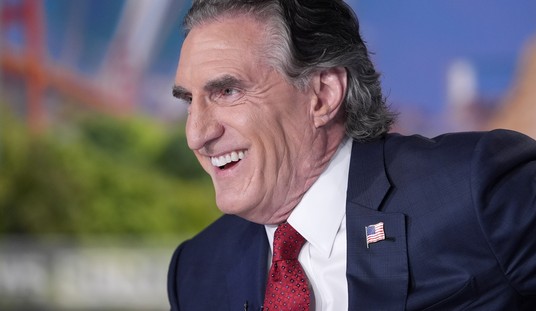If Congress won’t fund the border wall, the theory goes, perhaps Congress’ bosses might. A Iraq War veteran launched a GoFundMe project on Monday to get Americans to pony up to get Donald Trump the $5 billion he demanded as part of the spending package that will pass later today. Brian Kolfage has already raised nearly $3 million, and he wants to get the site to lift its limit of $1 billion for the goal:
Brian Kolfage, a 37-year-old Florida resident who was severely wounded in the Iraq war, has started a GoFundMe campaign to complete Trump’s signature pledge. The campaign has raised over $2 million in the three days since it started, with an overall goal of $1 billion. …
In a statement on the campaign’s site, Kolfage said the $1 billion is the current max for GoFundMe, but he is working to raise it. He added that if the roughly 63 million Americans who voted for Trump donated $80 each, they would be able to raise the $5 billion the president is asking Congress for.
“Democrats are going to stall this project by every means possible and play political games to ensure President Trump doesn’t get his victor [sic],” Kolfage wrote. “They’d rather see President Trump fail, than see America succeed. However, if we can fund a large portion of this wall, it will jump-start things and will be less money Trump has to secure from our politicians.”
It’s a fine idea in theory, but not without its problems. In the first place, the $5 billion figure doesn’t cover the cost of the entire wall project. The cost estimates for a full border barrier system range from $12 billion to $70 billion. Trump’s ask in this budget cycle was to fund as much as could be built in a fiscal year. At the most common estimate of $25 billion, each Trump voter would have to kick in $400 or more to cover the full cost of construction, not $80.
Second, the funds Kolfage raises might not ever get used by the government to build the wall. Federal public-works projects require funds appropriated by Congress unless it creates an entity for accepting private funds in partnership. That’s to ensure that Congress retains control of federal operations and to prevent fraud and mismanagement. With the wall being built on federal land and lands that the federal government will condemn through eminent domain, the project requires that kind of accountability and control.
That’s been done before, as Kolfage points out, most recently in the restoration of the Washington Monument. The prospects don’t look too good for Kolfage’s project, though. The Washington Post reports that two House Republicans filed legislation this year that would create a “Border Wall Trust Fund” under the aegis of Homeland Security that would satisfy the legal requirements for accepting private funds for the project. However, that bill has gone nowhere and will die at the end of this session of Congress, and it’s not likely that Nancy Pelosi will revive it in the next session.
If nothing else, though, the project works as a form of protest. The more money it raises and the more donors join in, the bigger message it sends to elected officials in Washington over voters’ desire to get the project finished. Until it hits the goal of $1 billion, none of the money actually changes hands, according to GoFundMe rules. If it gets that high and the money actually does get transferred to Kolfage, he’ll have the opportunity to build more than just a wall. And that will certainly get attention in Washington.








Join the conversation as a VIP Member